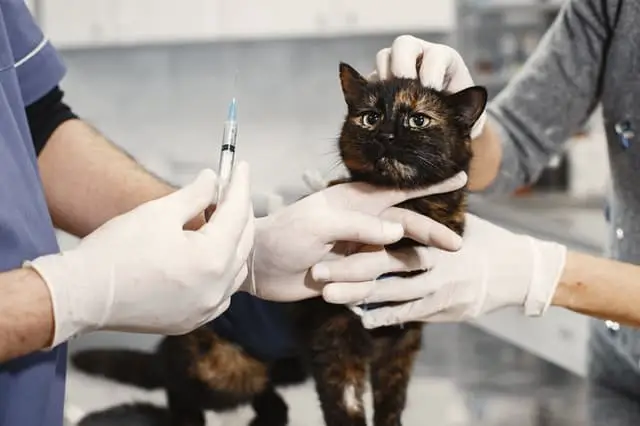
If you are thinking of adopting a cat or you already own one you must be informed about the vaccination calendar to take care of its health in the best possible way.
Vaccinations of cats
Vaccinations are essential for the health of the cat, as they allow him to create the immune defenses necessary to fight some dangerous diseases thanks to the antibodies that are administered subcutaneously.
Cat vaccinations follow a specific schedule, with some rules regarding mandatory vaccines and timing of administration.
To find out what vaccinations to do to our cat and when to administer them, just contact your trusted veterinarian who will give us all the necessary information.
In particular, we must ensure, before vaccinating the cat, that all parasites have been eliminated and that it is in good health. Furthermore, it is important that the cat has a sufficiently developed immune system to be able to proceed with the mandatory vaccinations.
At what age should the cat be vaccinated?
Before proceeding with vaccinations, it is essential that the cat has passed the weaning phase: if administered too early, in fact, the vaccines may not have the right effectiveness.
Breastfeeding is essential because part of the mother cat’s immune defenses are transmitted to the kittens. Between 5 and 7 weeks of age, the kitten loses the immunity of the mother and this is why it is advisable to start vaccinations when the cat turns 2 months of age.
As long as the kitten is not vaccinated, it is important that he does not leave the house and that he does not interact with other cats because we cannot know if his immune defenses are able to protect him from disease.
Cat vaccination calendar: how it works

Vaccination calendar for the cat
Before proceeding with the vaccines, the cat must be subjected to some fundamental tests for feline leukemia and feline immunodeficiency: they are not mandatory, but it is advisable to do them anyway.
The cat vaccination schedule is as follows:
- 1 month and a half: pesticide prior to vaccines,
- 2 months: leukemia and immunodeficiency test + first dose of the trivalent,
- 2 and a half months: first dose of feline leukemia vaccination,
- 3 months: second dose of the trivalent,
- 3 and a half months: second vaccination against leukemia,
- 4 months: first rabies vaccination,
- once a year: the trivalent, vaccination against feline leukemia and against rabies is repeated.
Other useful information on vaccines for cats
Mandatory plans can be changed, so check with your vet to find out what vaccinations should be given to your cat.
Annual calls are essential for the health of the cat, especially if it is a feline accustomed to leaving the house freely.
Compulsory vaccinations for cats are essential, but the rabies vaccine that may seem unnecessary is also very important because it is a disease that can also be transmitted to humans.
Do not forget that to travel abroad with a cat, you must inquire about any mandatory vaccinations and that there are also other useful vaccinations for domestic cats, such as that against feline infectious peritonitis.






